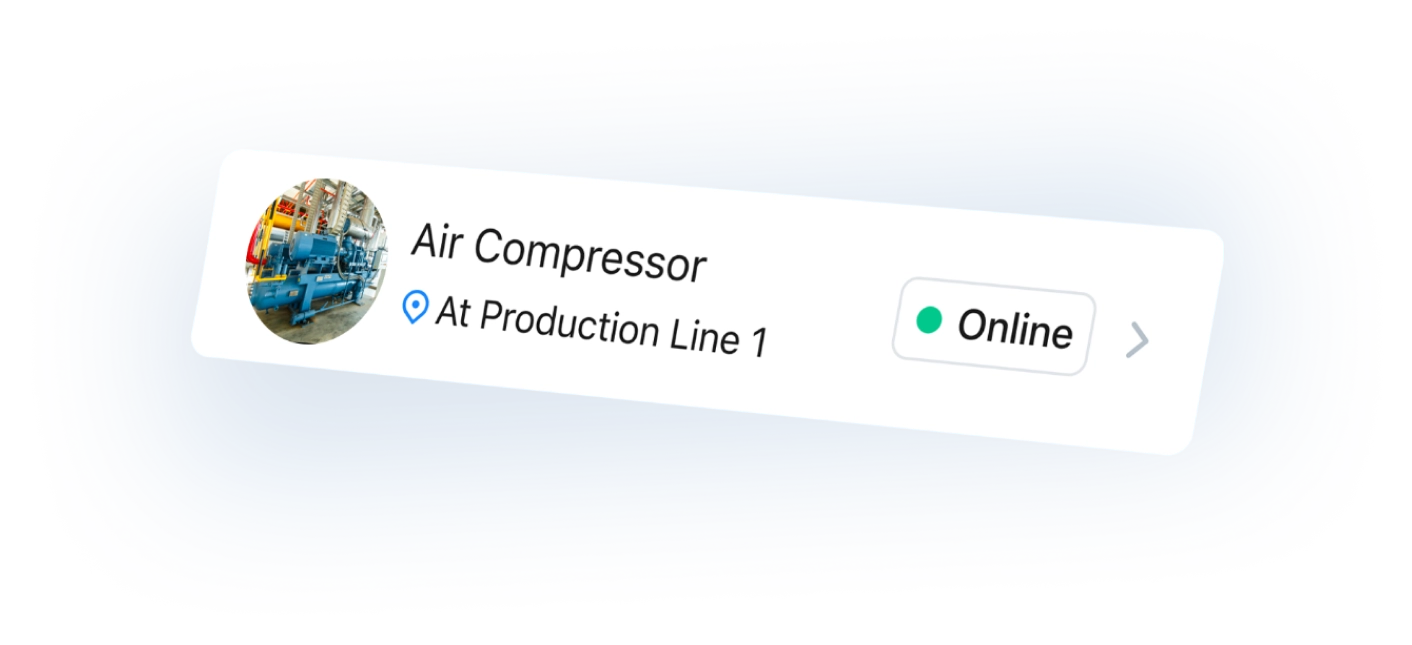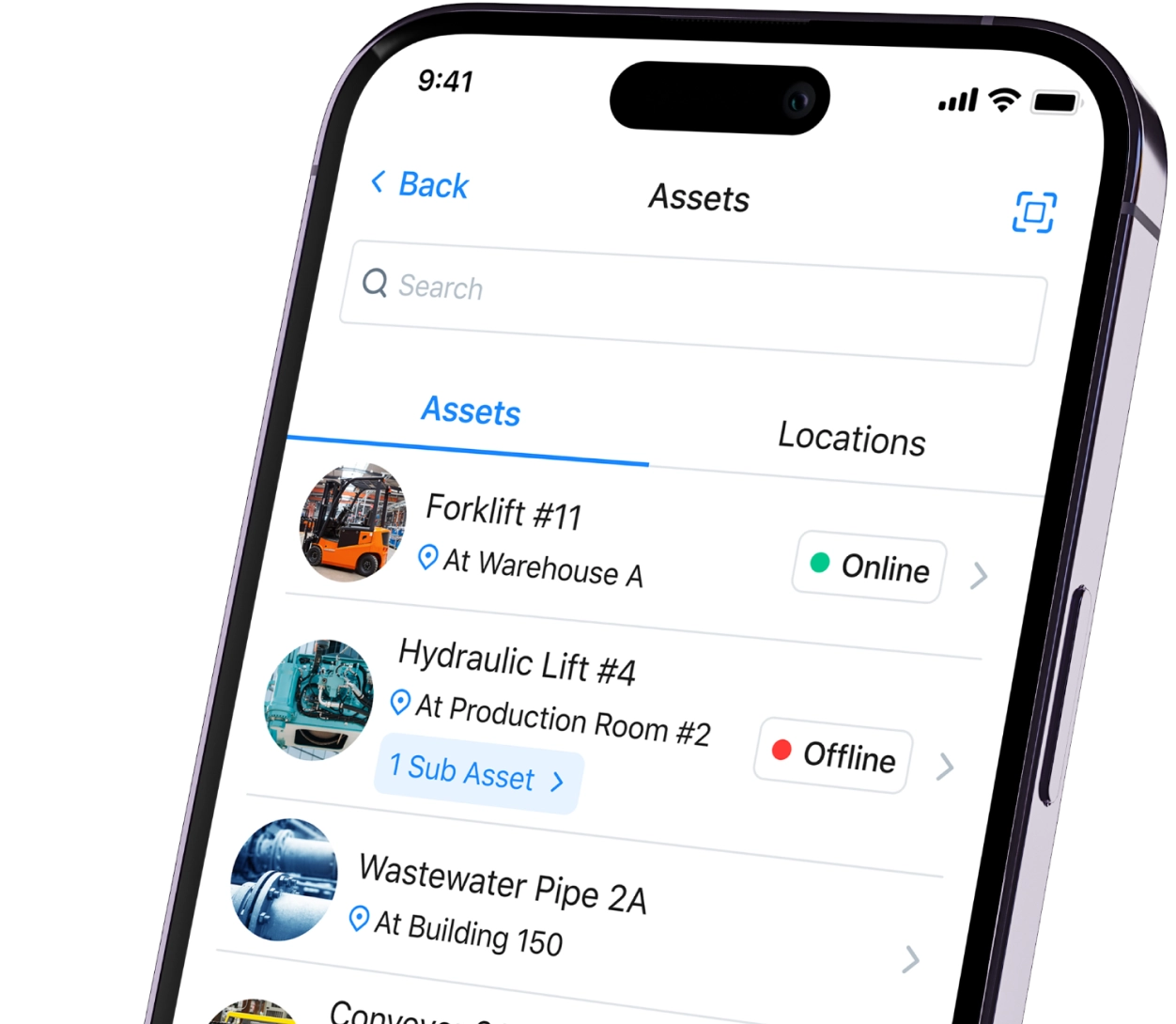Keeping hotel patrons safe and comfortable is more important than ever.
In this post, we’ll share some key actions you can take to streamline hotel maintenance, enhance customer satisfaction, and, ultimately, book more rooms. First, let's explore what hotel maintenance is, and why it's important.
What is hotel maintenance?
Hotel maintenance refers to all activities involved in maintaining a hotel's facilities, systems, and assets. This includes the maintenance of guest rooms, physical assets throughout the hotel, and all of building's operational systems that keep it running.Like general building maintenance, HVAC, electrical, and plumbing systems are some of the primary systems needing to be maintained in a hotel. However, the hospitality industry has additional maintenance needs tightly related to reputation management and safety. The quality of hotel mattresses, elevators, swimming pools, and gymnasium equipment can easily make or break guest experiences.
Why hotel maintenance is so important
Maintaining customer satisfaction is key to succeeding as a hotel franchise. Guests will complain if something isn’t working—to you, their friends, and strangers on the Internet. As reported by Inc., it takes approximately 40 positive customer experiences to undo the damage caused by one bad review. The main factors that drive customer satisfaction are room quality (24%) and the hotel’s facilities (19%).
Hotel maintenance teams must proactively conduct inspections to ensure facility equipment is safe and always operating in top shape. For example, bad lighting is one of the common complaints voiced by hotel visitors—nobody likes the feeling of walking down a dark hotel corridor. Routine maintenance easily avoids this situation.
Additionally, maintenance helps hotels to:
- Avoid downtime and ensure room availability.
- Enhance the safety of guests and personnel.
- Reduce operational costs.
- Increase the lifespan of assets.
From a management perspective, hitting annual revenue goals is contingent upon preventing downtime during high seasons. For example, say a hotel charges $150 per room and needs to shut down 10 rooms for two nights for reactive maintenance—this adds up to $3,000 in lost revenue.
The solution is an organized preventive maintenance (PM) program and computerized maintenance management system (CMMS) to assign recurring maintenance tasks, manage asset history, and enhance team communication so necessary repairs don’t fall through the cracks.
Hotel assets and systems that require maintenance
Hotel maintenance is can be broken down into 3 categories: facility maintenance, equipment maintenance, and system maintenance. Let's take a closer look at each to better understand what all this involves.
Facility maintenance
Facility maintenance for a hotel can involve cleaning, repairing, and inspecting:
- Hotel rooms
- Furnishings
- Lighting fixtures
- Faucets
- Flooring and carpeting
- Hotel lobbies
- Wall paint and wallpapers
Equipment maintenance
Maintaining equipment in a hotel includes efforts like servicing parts and assets such as:
- Computers
- Gym equipment like treadmills
- Ranges and ovens in hotel restaurant kitchens
- Washing machines and dryers
- Power generators
- Steamers and irons
- Coffee makers
- Microwaves
- Printers
Systems maintenance
Systems maintenance in a hotel ensures the smooth running of building systems, such as:
- Refrigeration systems
- Plumbing systems
- HVAC systems
- Heating systems
- Fire alarms
- WiFi connections
- Electrical connections
- Phone lines
- TV connections
- Elevators
Now that we understand the various assets and systems hotels need to maintain, let's look into the different types of maintenance activities hotels use to manage these activities.
Types of maintenance activities in the hotel industry
Not all maintenance tasks are approached the same. Some are done daily, while others are done only when a problem arises. Typically, hotel maintenance can be categorized as either Reactive, Preventive, Routine, or as part of a larger one-off project.
Reactive maintenance
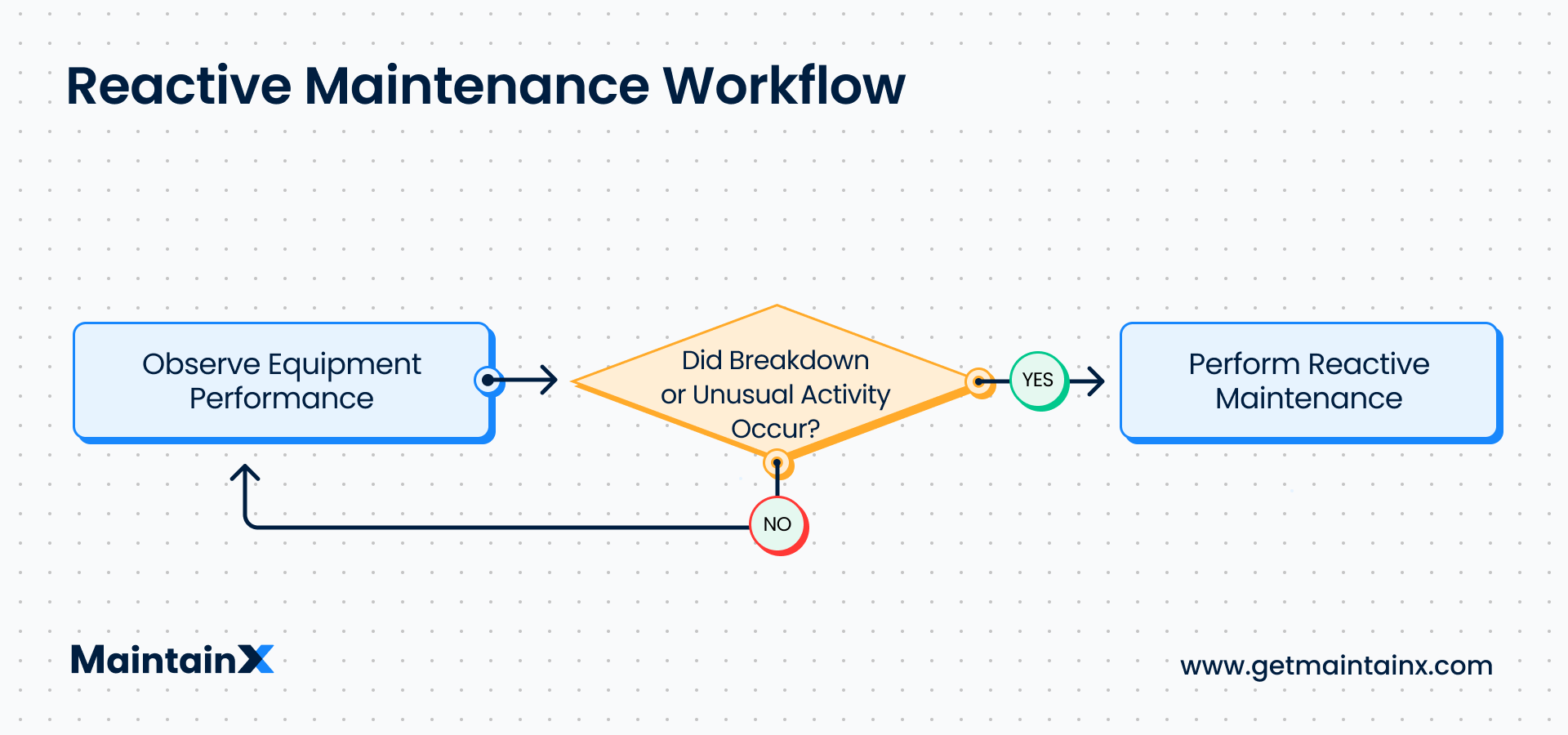
Reactive maintenance means fixing something only after it breaks down, for example, repairing a malfunctioning HVAC unit. For some assets, reactive maintenance makes sense, such as with non-critical equipment that is cheap and easy to replace. For others, such as an electrical system, downtime can be very costly, which means preventive maintenance systems must be in place.
Preventive maintenance
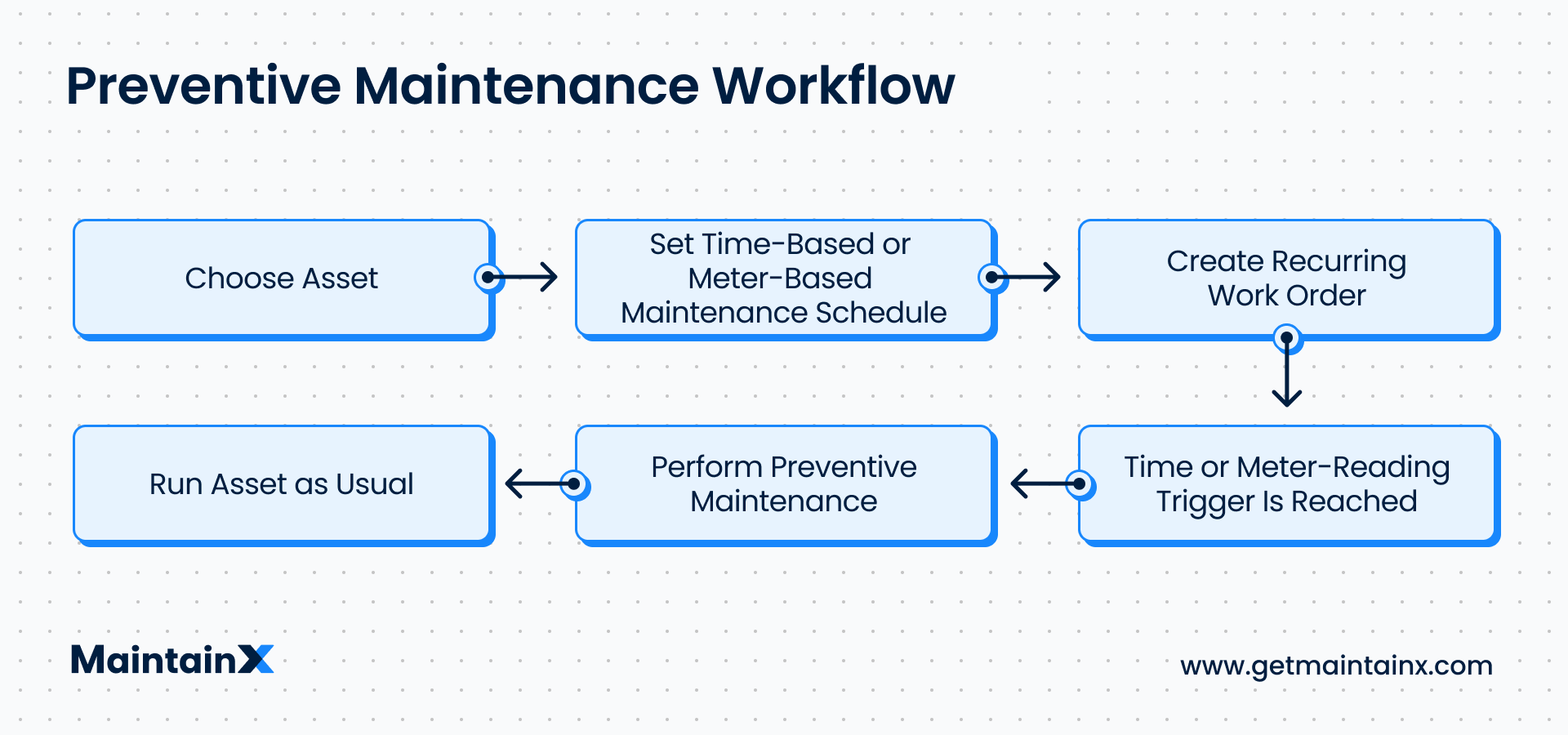
Preventive maintenance aims to proactively resolve issues before they turn into problems—and, most importantly, before they lead to guests’ complaints. Preventive maintenance requires having a maintenance schedule in place and checking the condition of assets regularly.
Routine maintenance
Routine maintenance for a hotel involves any regularly scheduled maintenance activities - regardless of if they're considered preventive or not. For example, routinely changing the bed sheets in a guest room, vacuuming a hallway, or changing HVAC filters would all fall into this category.
Larger maintenance projects
Larger maintenance projects for a hotel include activities that aren't going to be completed in a short period of time, and are typically not expected to be performed more than once. For example a large project could be upgrading the whole HVAC system, or optimizing your electrical system in order to lower consumption.
Big projects take time to plan and complete, which means that they’re usually scheduled during the offseason.
Types of hotel maintenance staff
In hotels, there are generally four main types of maintenance workers, who work together to maintain the hotel’s assets:
- Maintenance Technicians: Maintenance technicians are responsible for the upkeep of the hotel’s assets, which they inspect and service.
- Maintenance Managers: Maintenance managers organize the maintenance team’s work and make sure it has the necessary resources.
- Maintenance Engineers: Hotels with higher maintenance needs may also hire hotel maintenance engineers to oversee and optimize the maintenance team’s work and work closely with hotel maintenance managers.
- Housekeeping: All hotels require janitors or custodial staff to perform routine maintenance for guest services. This includes room cleaning and general cleaning or upkeep of the shared spaces throughout a hotel.
Hotel maintenance needs are diverse. This means that maintenance personnel must have broad expertise and be able to quickly adapt to new challenges and find solutions to all kinds of problems.
Tips for hiring exemplary hotel maintenance staff
Finally, prioritize hiring a maintenance manager and reliable technicians who can remedy various issues. Tips for hiring stand-out maintenance workers include:
- Prioritize candidates with a high school diploma or proven maintenance experience repairing critical HVAC, plumbing, lighting, and electrical systems.
- Pay special attention to those with certifications like Certified Maintenance & Reliability Technician (CMRT), Certificate for Apartment Maintenance Technicians, and Building Systems Maintenance Certificate.
- Ask candidates how they would solve common hotel maintenance requests, guest complaints, and other typical problems.
- Evaluate written communication skills by requesting applicants to submit brief emails or cover letters summarizing their work experience.
10 Ways to improve hotel maintenance management
Effective hotel maintenance management results in comfortable, safe, and happy guests. In turn, satisfied patrons tell their friends, family, and strangers how much they enjoyed their stay. The result of ineffective general maintenance? Uncomfortable, stressed, and grouchy guests who, more often than not, tell anyone who will listen about their disappointments!
As you know, it only takes one bad online review to discourage some patrons from booking. So, why doesn’t every maintenance supervisor run their department like a well-oiled machine? Put simply, hotel maintenance involves many moving pieces.
Establishments with small teams often struggle to implement organizational systems that ensure maintenance teams complete preventive maintenance (PM) tasks. And even teams with enough maintenance workers sometimes struggle to prioritize maintenance requests. Luckily, work order software options like Computerized Maintenance Management Systems (CMMS) exist to streamline maintenance processes. (More on this shortly.)
So, how do you manage all of the maintenance involved in a hotel? A top-notch hotel maintenance program has a few key components. Let’s discuss each one of them.
1. Keep maintenance logs
Maintaining an accurate log of your hotel maintenance activities is vital. These logs include records of maintenance activities to perform, maintenance personnel responsible for completing the tasks, and when and how to complete the tasks.
The logs should also be easy to share and audit. Maintenance logs also provide vital information for spare parts inventory so that when maintenance issues arise, your maintenance management software can provide actionable information on real-time inventory levels and whether or not you need to order parts. Ordering spare parts in emergencies can hike up vendor pricing.
2. Implement a proactive maintenance program
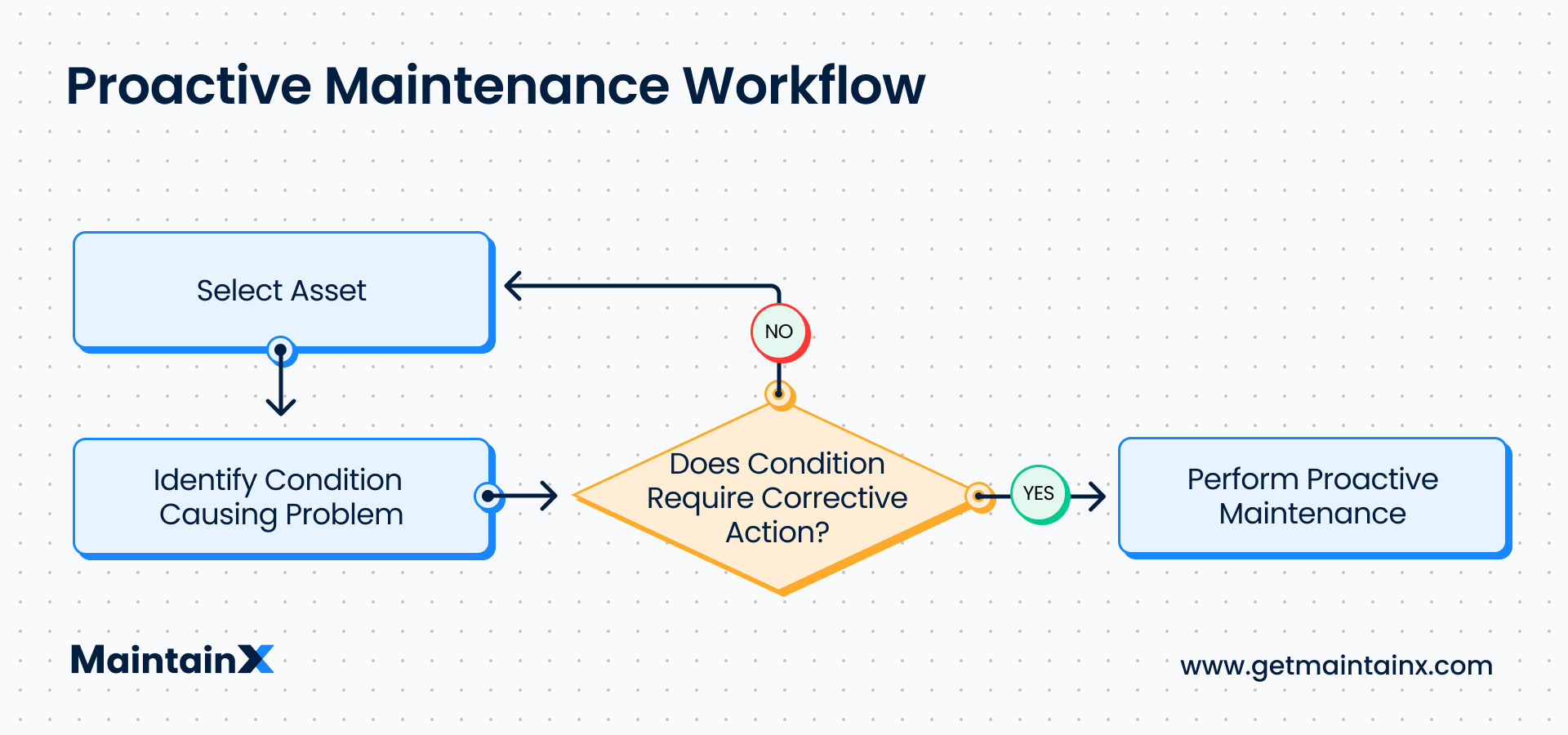
If your approach to maintenance is entirely reactive, you’re jeopardizing both your hotel’s reputation and the safety of your guests and personnel. Having a proactive maintenance program in place helps keep guests happy. In addition, your maintenance costs will be lower and more predictable.
3. Use hotel maintenance software
The best way to ensure work is completed on time is to automate a part of the maintenance scheduling and workflows. Hotel maintenance software, such as a CMMS, helps management plan tasks in advance, schedule recurring work orders, and react quickly to breakdowns.
4. Schedule and execute preventive maintenance
Preventive maintenance helps keep your assets in optimal shape for excellent guest experiences. However, preventive maintenance’s success relies entirely on managers creating optimal preventive maintenance schedules for their activities. One way to do this is the traditional pen-and-paper method. But here’s the thing:
Keeping a hotel running smoothly requires multiple systems functioning optimally and simultaneously. As such, drawing up paper maintenance schedules, pinning them to a notice board, and waiting for staff to read them are time-consuming activities you want to avoid.
Maintenance software such as a Computerized Maintenance Management System (CMMS) can help facility managers streamline maintenance activities and share real-time information with team members. Automate preventive maintenance activities by scheduling notifications for the maintenance team when the time arrives for maintenance tasks. Mobile notifications, in particular, ensure that whoever is on duty will know on time precisely what hotel areas they are responsible for and what responsibilities they should perform. What’s more, CMMS solutions with chat mean team members can converse directly, seek clarification, and maintain a record of communications.
Work order software also makes it easier to access historical asset data. You can track dates serviced, money spent on repairs, hours logged by technicians, and money spent on toiletries and other supplies to inform budgets and other financial decisions.
5. Invest in staff training
Unfortunately, turnover in the hospitality industry is a whopping 73.8 percent—one of the highest compared to other industries. Investing in staff training shows your employees that you value them and care about their professional development—and helps you better maintain your hotel. However, if your maintenance personnel is trained to fix most problems, you won’t need to depend on contractors, who may or may not be available when you need them.
Educate your personnel—everyone, not just your maintenance team—on the importance of preventive maintenance. Ask them to immediately signal any issues they see, so that you can schedule maintenance works before your guests complain.
6. Create Standard Operating Procedures (SOPs)
Standard operating procedures help ensure staff and technicians perform maintenance tasks consistently regardless of the technician on duty. You also can use SOPs to onboard and train new team members to perform their assigned duties. Your SOPs can include any information vital to the proper care and maintenance of your hotel facilities.
Develop standard operating procedures (SOPs) that your staff can rely on, whenever they need to service an asset. Make your SOPs easy to consult, and use checklists and templates that are easy to follow. SOPs and checklists help you and your team stay organized and accountable.
7. Prioritize maintenance to ensure guest safety
Many of today’s patrons value safety above all else. Using digital checklists in a maintenance management system is the best way to ensure compliance. Managers can also assign routine safety and cleaning procedures for sprinklers, smoke detectors, swimming pools, and other potential safety hazards.
8. Use an inventory management system
For a hotel to function smoothly, the maintenance team needs to have the necessary inventory—tools, spare parts, materials—to do its job.
A CMMS is an excellent way to implement effective inventory management. With MaintainX, for example, teams can maintain real-time, up-to-date records of what enters or leaves inventory using QR codes and barcodes. Hotel managers can also take advantage of MaintainX’s purchase orders functionality to create automated low-quantity alerts and trigger automatic purchase orders.
Furthermore, it’s also important to know where your inventory is located if you have a few storage rooms, so that maintenance personnel can quickly find what they need.
9. Know your numbers
To maintain your hotel well, you need to track your numbers and analyze how they progress. Key performance indicators (KPIs) are:
- Asset downtime and availability
- Asset condition (on a scale)
- Reactive to preventive maintenance ratio
- Maintenance costs
- Work order resolution times
- Number of customer complaints related to maintenance
These statistics provide valuable insights into the state of your maintenance program, as well as its evolution. This way, you can identify important issues and overall trends and improve over time.
10. Use checklists
Certain maintenance activities are necessary, no matter the facility. For example, cleanliness and safety are non-negotiable whether you run a large hotel or a small hostel.
However, building a robust preventive maintenance checklist that works for you requires considering your facility’s unique circumstances. How many guests do you host daily? How large is your cleaning staff? What time of the year is it, and what seasonal maintenance activities does your hotel require?
In addition to procedures and templates, MaintainX’s procedures library contains checklists for various hotel maintenance activities. Regardless of the answer to the above questions, here are some checklists to begin building your schedule.
- Guest Room Housekeeping Checklist
- OSHA Housekeeping Checklist
- Accommodation Inspection Checklist
- Front-of-House Cleaning Checklist
- Back-of-House Cleaning Checklist
- Inspection Checklist for Decks and Balconies
- Plumbing Hazard Checklist
- Plumbing Inspection Procedure
- Building Inspection Checklist
- Building Exteriors Inspection Checklist
- Daily Spa/Pool Checklist
- Sprinkler Inspection Checklist
- Golf Cart Maintenance Checklist
4 high-priority preventive maintenance activities for hotels
We've established the vast range of maintenance activities hotels perform, however the following 4 high-priority & common preventive maintenance activities are worth exploring further.
1. HVAC systems maintenance
According to Hotel Online, over 70 percent of hotel guests’ complaints stem from room problems such as malfunctioning HVAC systems.
Whether in the searing heat of summer or the cold winter, no guest is returning to your hotel if they can’t regulate their room temperatures. They’re even likely to leave a negative review. Therefore, regularly inspect the systems, ensure and ensure that they’re functional, and replace air filters on schedule.
Follow manufacturer recommendations when performing maintenance on HVAC systems. Using CMMS solutions is an excellent way to ensure responsible staff members never forget this (or any other) step. All maintenance managers need to do is create detailed checklists for room maintenance activities that include all the necessary steps.
2. Plumbing systems maintenance
Many hotel owners think that maintaining plumbing systems is just about dealing with clogged toilets and leaking pipes. It’s more than that. You should also ensure your plumbing lines aren’t rusty, cracked, or blocked. Ensure that the water temperatures and pressure are at the right level, using work order software with data tracking functionality to monitor past and present levels and identify changes. Additionally, you should watch out for water damage to your ceilings and floors.
3. Electrical systems maintenance
Power outages are disruptive and negate your guests’ experience at your hotel. While the source of the problem may be the grid, you should strive to provide a backup power generator to ensure guests can still enjoy critical facilities such as elevators and HVAC systems. You should also inspect your electrical systems for faults to avoid accidents, such as guests getting electrocuted.
Staff should perform regular checks and maintenance on boilers, plugs, electricity outlets, circuit breakers, and electrical panels. Ensure that the electrical system in each room is functioning as it should. Once you figure out the proper schedule for your electrical systems checks, you can create a repeatable work order for the task in a CMMS and have it recur at an interval you choose.
4. Lighting systems maintenance
Poor lighting also contributes to a negative guest experience. Ensure that there are no burnt-out bulbs in your rooms and bathrooms. While it can be difficult to predict when bulbs will need replacing, you can make sure to always have a maintenance technician on hand to handle such eventualities.
As discussed, you can also create a maintenance schedule estimating when bulbs need replacing, besides regular inspections to identify and replace burnt-out bulbs. Proper lighting isn’t necessary just for comfort but also for safety.
You should prioritize these four core areas of hotel maintenance for a positive customer experience. You can use MaintainX CMMS to create, assign, and monitor recurring PMs to reduce the likelihood of critical assets breaking down and inconveniencing hotel guests.
Hotel maintenance certifications & training programs
In the hospitality industry, employees need to prove performance excellence (skills, knowledge, experience) to compete in the job market. Certification is important if you seek to advance your career as a hotel maintenance professional.
Certification is usually available after you gain a few years of experience and can be obtained before you start. Two of the most widely recognized certifications for hotel maintenance are:
- The Certified Maintenance Employee (CME) program of the American Hotel & Lodging Educational Institute (AHLEI) is aimed at hotel maintenance personnel. An online training program is available.
- The Certified Chief Engineer (CCE) program of the National Association of Hotel & Lodging Engineers (NAHLE) is for hotel maintenance workers and engineers.
Use MaintainX CMMS to enhance hotel maintenance
As discussed, you can use a CMMS system to create preventive maintenance schedules, track maintenance work, and monitor your metrics. This last part is critical to successfully executing a preventive maintenance program.
Each hotel’s maintenance requirements are different, depending on its size, location, and amenities offered. Regardless, every hospitality facility shares the same primary goal: to keep hotel guests safe, happy, and comfortable. Hotel maintenance software provides operational managers with the peace of mind that no asset upkeep will be overlooked—which is crucial to success, especially during busy seasons.
Let’s look at some more benefits of using CMMS maintenance software to execute hotel maintenance:
- Simplifies Maintenance Management: Helps develop effective maintenance strategies by providing historical maintenance data for rooms, shared locations, and assets. MaintainX CMMS offers barcode and QR code scanning and creation for easy asset tracking on mobile devices. Users can create and scan digital codes for rooms, locations, and assets to access maintenance data.
- Enhances Organization: Centralized data storage makes cross-referencing maintenance data easy for the maintenance team and hotel staff.
- Decreases Asset Downtime: Helps maintenance teams focus on improving asset uptime instead of tedious administrative tasks such as consulting clunky spreadsheets, pen-and-paper work orders, emails, voicemails, and text messages.
- Improves Communication: MaintainX is the only CMMS app on the market that provides work order commenting, team messaging, and individual messaging. This means hotel staff can instantly communicate time-sensitive information through a reliable, centralized channel and maintain records of these conversations.
- Reduces Capital Spending: CMMS allows managers to track asset performance and move from reactive to preventative maintenance. Studies suggest companies can save an average of 12 to 18 percent in maintenance costs by investing in PM.
MaintainX puts quality hotel maintenance at your fingertips. Try MaintainX. It’s free.
Hotel maintenance FAQs
Who Is responsible for managing the facilities in a hotel?
The hotel maintenance technician is responsible for keeping all equipment in excellent condition. Bigger hotels will have dedicated maintenance teams or departments and a manager. Maintenance managers are accountable for planning and scheduling maintenance tasks and need to make sure that their team has the necessary resources to carry out maintenance work on time.
In some cases, hotels hire contractors for specific maintenance tasks. This is done either when the tasks are particularly complex, or when they don’t have enough staff to handle the work, for example, in an emergency.
What are examples of hotel maintenance tasks
Below are daily tasks completed by maintenance workers:
- Service the HVAC system and HVAC units
- Set optimal temperature levels in common areas
- Inspect electrical systems
- Fix issues with plumbing, such as leakages and faulty faucets
- Rotate and maintain locks
- Ensure lighting systems function well
- Service elevators
- Make sure that walls, furniture, and floors are in excellent condition
As you can see, the tasks of hotel maintenance personnel are diverse and require meticulous planning.
What is preventive maintenance in a hotel?
Preventive maintenance is essential for hotels to ensure that all equipment is in good condition at all times, which prevents both guests’ complaints, ensures safety, and reduces asset downtime.
If you’re relying exclusively on reactive maintenance (i.e., fixing things after they break), your team may be stretched too thin, running after the most urgent issues. This also means that less urgent tasks fall between the cracks and aren’t taken care of—which could lead to more problems down the line.
Is hotel maintenance a “good” job?
Hotel maintenance workers work with different systems—HVAC, plumbing, electricity, and more—which means they need to be well-rounded professionals with many different skills.
Four- and five-star hotels, such as international chains and local boutique hotels, can provide very good working conditions and job security, especially as you advance in your career. They’ll generally invest more money and effort into maintaining their facilities because they rely heavily on their reputation.
The job requirements, as well as wages, can vary widely between different hotels. The salary of hotel maintenance technicians in the US falls in the range of $34,812 and $61,307, with a median of $46,595.

Caroline Eisner
Caroline Eisner is a writer and editor with experience across the profit and nonprofit sectors, government, education, and financial organizations. She has held leadership positions in K16 institutions and has led large-scale digital projects, interactive websites, and a business writing consultancy.
See MaintainX in action

